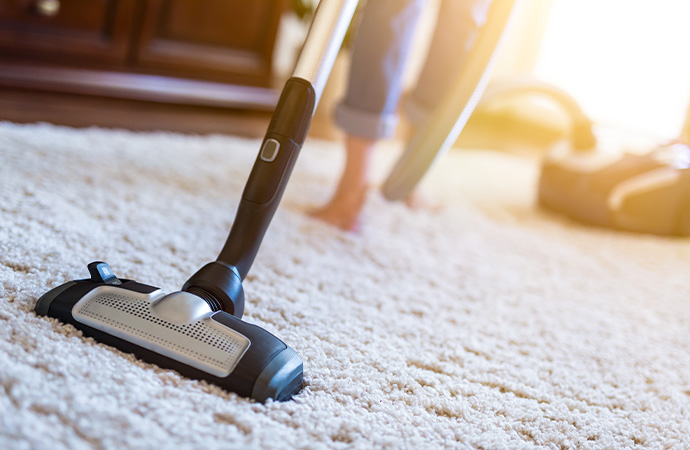What is Best for Your Carpet?

There's no doubt that regular, professional cleanings benefit both you and your carpet. Removing unwanted contaminates from your carpet promotes a healthier indoor environment. Properly maintaining your carpet prolongs its useful life. We can help you determine how often you should clean your carpets during your cleaning visit. Here are a few tips to get through until you recommend carpet cleaning is due.
- Clean your carpet sooner rather than later. Soil buried in your carpet acts like an abrasive, accelerating the wear of face yarns. Soils are so much harder to remove when they have been ground in over a period of time.
- Vacuum regularly, especially in front of exterior doors where soils can accumulate.
- Clean up spills when they happen.
- Use products intended for use on carpets only. Try water first. If the spot remains use a non-residual product. We can give you some names of products.
- Properly performed cleaning, even frequent cleaning, doesn't damage your carpet. It also will not cause your carpet to soil more quickly.
- Always consult a professional carpet cleaner if you have questions about the care of your carpet.
Here Are Some Helpful Tips for Spills:
Spot Removal Steps:
Act Quickly! Most carpet available today has been treated with a stain-resist treatment, so many spills can be removed if immediate action is taken. The longer the delay, the higher the probability of a spill becoming a permanent stain. No carpet is completely stain proof.
Blot liquids with a dry, white absorbent cloth or white paper towels (no printing)
Do not scrub the area! Scrubbing may cause pile distortion in the affected area.
Pretest any spot removal agent in an inconspicuous area to be certain the solution will not damage the fiber or the dye. After applying several drops to the test area, hold a white cloth on the wet area for 10 seconds. Examine the carpet if a change occurs, another cleaning solution should be used.
Apply a small amount of the cleaning agent to a white cloth and work in gently
Work from the edges of the spill to the center to prevent the spill from spreading. Don not scrub! Blot in order to absorb as much as possible.
Continue using the cleaning solution as long as there is a transfer of the spoil to the cloth
Be patient! After the spill has been completely removed, rinse the affected area thoroughly with cold water and blot with a dry cloth. Apply a one-half inch layer of white paper towels to the affect area, weight down with a flat, heavy object.








